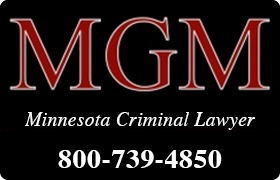Saint Paul Juvenile Law Lawyer, Minnesota
Sponsored Law Firm
-
 x
x

Click For More Info:
-
MGM Law Office
11436 Marketplace Drive North, #322 Champlin, MN 55316 » view mapCriminal Defense, DUI, Expungement, more... Helping Clients Manage Risk | Call Now
MGM Law Office is prepared to understand the unique facts of your case and assist you in your defense. We can assist you with all of your criminal defense matters.
800-739-4850  Michael Martin Champlin, MN
Michael Martin Champlin, MNAttorney At Law - Minnesota
William Mitchell College of Law, 2009
 Case Results
Case ResultsMGM Law Office assists clients with personal, detailed attention to understand your unique situation.
Paul D. Sellers
✓ VERIFIED *Status is reviewed annually. For latest information visit hereCriminal, Juvenile Law, Constitutional Law, Traffic, Domestic Violence & Neglect
Paul D. Sellers is one of the most experienced criminal trial lawyers in Minnesota. He has achieved Not Guilty verdicts in DWIs, drug cases, assaul... (more)
Shannon Elkins
Juvenile Law, Felony, DUI-DWI, Criminal
Status: In Good Standing *Status is reviewed annually. For latest information visit here
FREE CONSULTATION
CONTACTKyle Wermerskirchen
Family Law, Divorce & Family Law, Juvenile Law, Criminal
Status: In Good Standing *Status is reviewed annually. For latest information visit here
Susan Jean Mundahl
Juvenile Law, Divorce, Divorce & Family Law, Criminal
Status: In Good Standing *Status is reviewed annually. For latest information visit here
FREE CONSULTATION
CONTACTAlex De Marco
DUI-DWI, Juvenile Law, Domestic Violence & Neglect, Criminal, Adoption
Status: In Good Standing *Status is reviewed annually. For latest information visit here
Caroline Durham
US Courts, Juvenile Law, White Collar Crime, DUI-DWI, Criminal
Status: In Good Standing *Status is reviewed annually. For latest information visit here Licensed: 31 Years
Chris Sullivan
DUI-DWI, Juvenile Law, Criminal, Trusts
Status: In Good Standing *Status is reviewed annually. For latest information visit here
Brian Mcnee Marsden
Transportation & Shipping, Juvenile Law, DUI-DWI, Criminal
Status: In Good Standing *Status is reviewed annually. For latest information visit here Licensed: 34 Years
Andrew Joseph Reiland
DUI-DWI, Juvenile Law, Domestic Violence & Neglect, Criminal
Status: In Good Standing *Status is reviewed annually. For latest information visit here
Karen L Ives
Divorce & Family Law, Wills, Juvenile Law, Prenuptial Agreements, Alimony & Spousal Support
Status: In Good Standing *Status is reviewed annually. For latest information visit here


 Michael Martin Champlin, MN
Michael Martin Champlin, MN Case Results
Case Results
